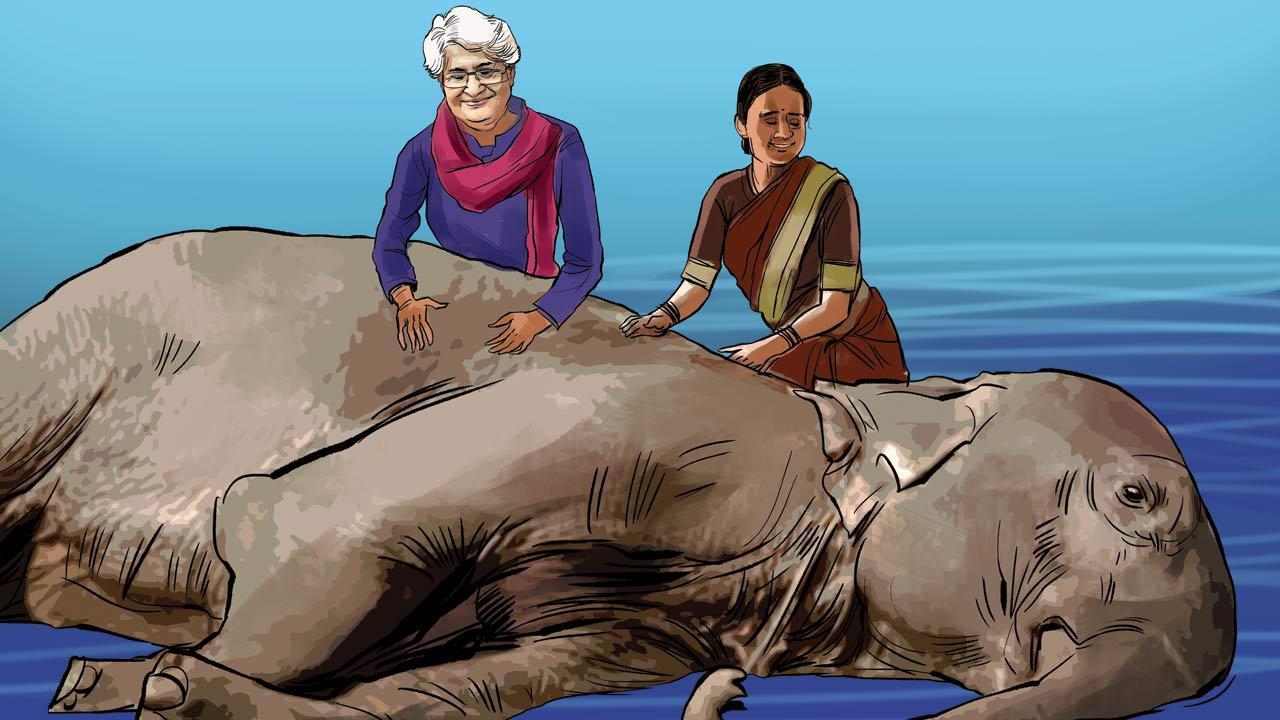Living on your own terms
Updated On: 09 May, 2021 06:46 AM IST | Mumbai | Meenakshi Shedde
Bhave also gives voice to the unseen guru, Maai, in Chaitanya Tamhane’s The Disciple, now on Netflix. Santosh Pathare is currently finishing his documentary on her, Sumitra Bhave: A Parallel Journey.

Illustration/Uday Mohite
First and last selfie. When noted Marathi film writer-director Sumitra Bhave passed away on April 19 at 78, of lung complications in Pune, Sunil Sukthankar, her co-director, partner and collaborator of 35 years, posted a photo of the two of them on Facebook, movingly titled ‘first and last selfie.’ Their body of over 60 films, including about 16 features, shorts and telefilms, mainly on social and mental health issues, is an unparalleled contribution to Indian cinema, and Marathi cinema in particular. Rooted in the Marathi milieu, many of these are award-winning and internationally acclaimed films. The films include Doghi (Two Sisters, 1995), Dahavi Fa (10th F, 2002), Devrai (Sacred Grove, 2004), Kaasav (Turtle, National Award for Best Feature Film, 2016), Vaastupurush (Guardian Spirit of the House, 2002) and Astu (So Be It, 2013), the last two being my favourites. Bhave also gives voice to the unseen guru, Maai, in Chaitanya Tamhane’s The Disciple, now on Netflix. Santosh Pathare is currently finishing his documentary on her, Sumitra Bhave: A Parallel Journey.
Bhave’s contribution to the body of films by Indian women directors is also substantial, given a fairly bleak picture overall. Wikipedia lists about 160 Indian women directors; comprehensive, reliable surveys are hard to come by. Even Hollywood had just 10.6 per cent women directors in 2019. And while Bhave and Sukthankar’s company Vichitra Nirmiti (Strange Productions) found it challenging to get wide theatrical release for their films, they did find receptive audiences in the festival and NGO/impact space. They were unstoppable. What’s more, Bhave and Sukthankar are two fairly rare filmmakers, whom producers pursued to direct films. Something about which even Bollywood directors can only fantasise. Yeshwant Oak, former president of the Schizophrenia Awareness Association, produced two films by Bhave and Sukthankar—Devrai, on a young man battling schizophrenia, and Ek Cup Chya (A Cup of Tea) encouraging use of the Right to Information law, to demand accountability in governance.



